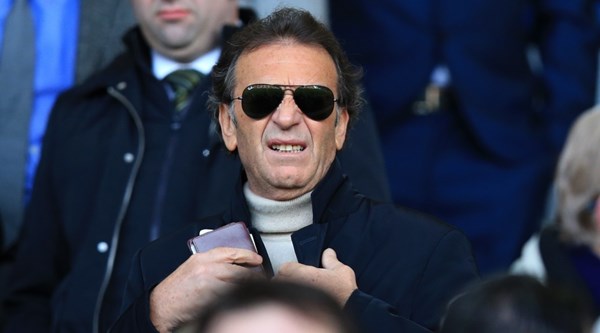West Ham suspend transfer director after he claims African players ’cause mayhem’
West Ham director of player recruitment Tony Henry has been suspended “pending...

Leeds owner Massimo Cellino has been banned for 18 months – effective from February 1, 2017 – for breaking the Football Association’s agent regulations, the governing body has announced.
Here’s a look at some of the questions surrounding the decision.

The Football Association has been investigating the transfer of Ross McCormack from Leeds to Fulham in the summer of 2014.
It charged Cellino and Leeds in May, with the former pleading not guilty. It is alleged a payment was made to an unlicensed agent within the transaction. After nearly seven months, the FA announced its decision today. There is no suggestion of any wrongdoing by McCormack.

The FA has said Cellino cannot act as a director or shadow director at any club or any company which owns a club for 18 months. This is not the first time he has been placed under such controls.
In 2014, the Football League banned him for six months based on a tax offence in his native Italy.

In a word, no. Large spells of Cellino’s time in England have been spent appealing sanctions – he only took over the club after a successful appeal relating to a tax issue in Italy – and he has already signalled his intent to contest. “I am guilty of one thing, protecting Leeds United,” he said.

Out of keeping with most of his tenure, Cellino has been a background figure at Elland Road this season. Since the June appointment of Garry Monk, he has given few media interviews and has tempered his outbursts.
More so, he has been working with businessman Andrea Radrizzani on a deal which would see his fellow Italian buy 50%, if not all, of his shares. That could now be accelerated, especially given Leeds are having their best season since 2005-06.
West Ham director of player recruitment Tony Henry has been suspended “pending...
Everton winger Theo Walcott hopes his fledgling partnership with Seamus Coleman can...
Riyad Mahrez’s immediate future is unclear ahead of Leicester’s Premier League home...
Portugal’s controversial semi-final defeat by France at Euro 2000, where a handball...
Louis van Gaal is to leave Manchester United, with immediate effect. Louis...
NEW YORK — Golden State Warriors forward Draymond Green’s flagrant foul on...
Barcelona boss Luis Enrique has backed the returning Neymar to boost his...
Tottenham will play all their home games at Wembley next season, the...
Cork City 2, Bray Wanderers 1 Cork City claimed a record 11th...
With Splash Brothers struggling, Warriors’ veteran backup point guard ignites Golden State...
With Stephen Curry and Klay Thompson uncharacteristically off, Golden State’s reserves pick...
Cleveland Cavaliers talisman LeBron James has admitted that keeping the Golden State...
 Name: Daniel Watson
Name: Daniel Watson
